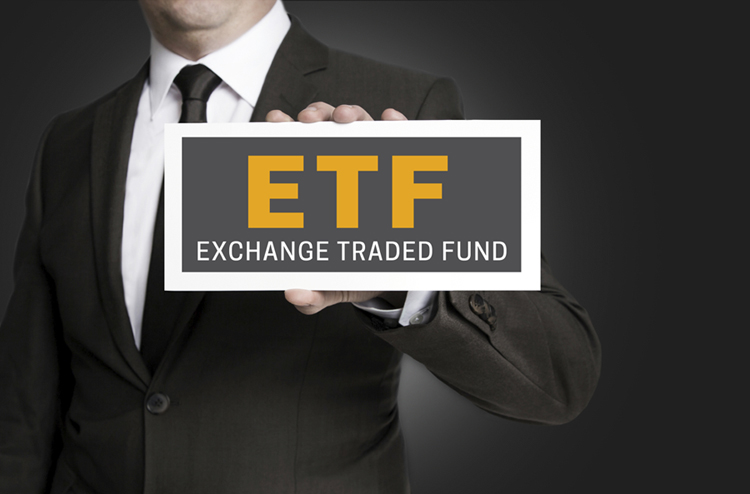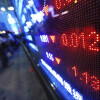Exchange Traded Fund (ETF) shares are structured to trade with a share price that is linked to an underlying basket of securities, indexes, currencies or commodities. ETFs can be traded intraday like a stock which is different than mutual funds which trade at daily closing prices. Exchange traded funds utilize market makers who have the ability to exchange creation units with the underlying securities held in the ETF to provide liquidity to help ensure that their intraday market price of the ETF approximates the net asset value of the underlying assets which the ETF is designed to track. Individual investors using a retail broker can trade ETF shares based on the share prices quoted on the exchanges. ETFs are bought and sold at the market prices on the exchanges, which resemble the underlying NAV of the basket of securities, indexes, currencies or commodities but are independent of it. However, arbitrageurs will ensure that ETF prices are kept very close to the NAV of the underlying securities that it tracks.
exchange creation units with the underlying securities held in the ETF to provide liquidity to help ensure that their intraday market price of the ETF approximates the net asset value of the underlying assets which the ETF is designed to track. Individual investors using a retail broker can trade ETF shares based on the share prices quoted on the exchanges. ETFs are bought and sold at the market prices on the exchanges, which resemble the underlying NAV of the basket of securities, indexes, currencies or commodities but are independent of it. However, arbitrageurs will ensure that ETF prices are kept very close to the NAV of the underlying securities that it tracks.
Exchange traded funds provide a unique investment vehicle that can provide immediate diversification to segments of the securities markets and exposure to securities traded on foreign exchanges. Exchange traded funds can provide exposure to asset classes with low to negative correlation to current portfolio holdings which can significantly reduce the overall risk of your investment portfolio. Exchange traded funds are available in the following investment categories:
- Market Index
- Selection Style
- Market Capital Size
- Market Sector
- Commodity
- Currency
- Single Country
Because exchange traded funds trade like stocks they provide many advantages over mutual funds including the ability to use:
- Limit Orders;
- Stop Loss Orders;
- Good until Cancelled Orders;
- Sell Short; and
- Margin.
Exchange traded funds are a low cost alternative to index mutual funds which are passively managed. Exchange traded funds are now available as actively managed funds. Exchange traded funds are transparent, lower cost and more tax efficient when compared to mutual funds as investment vehicles.
A financial advisor can review your current portfolio holdings and determine the appropriate use of exchange traded funds based on an investment policy statement designed to reach your True North.




